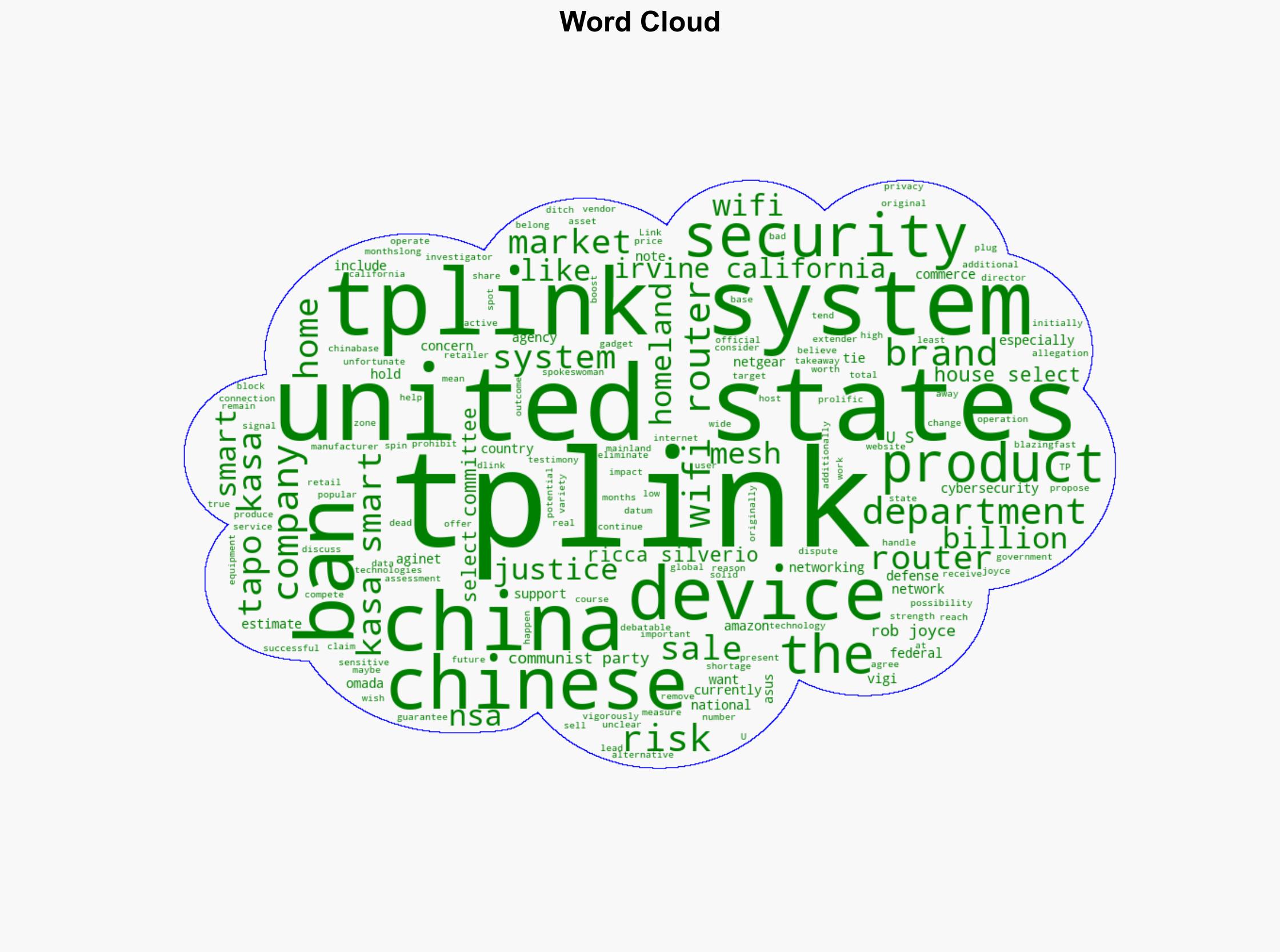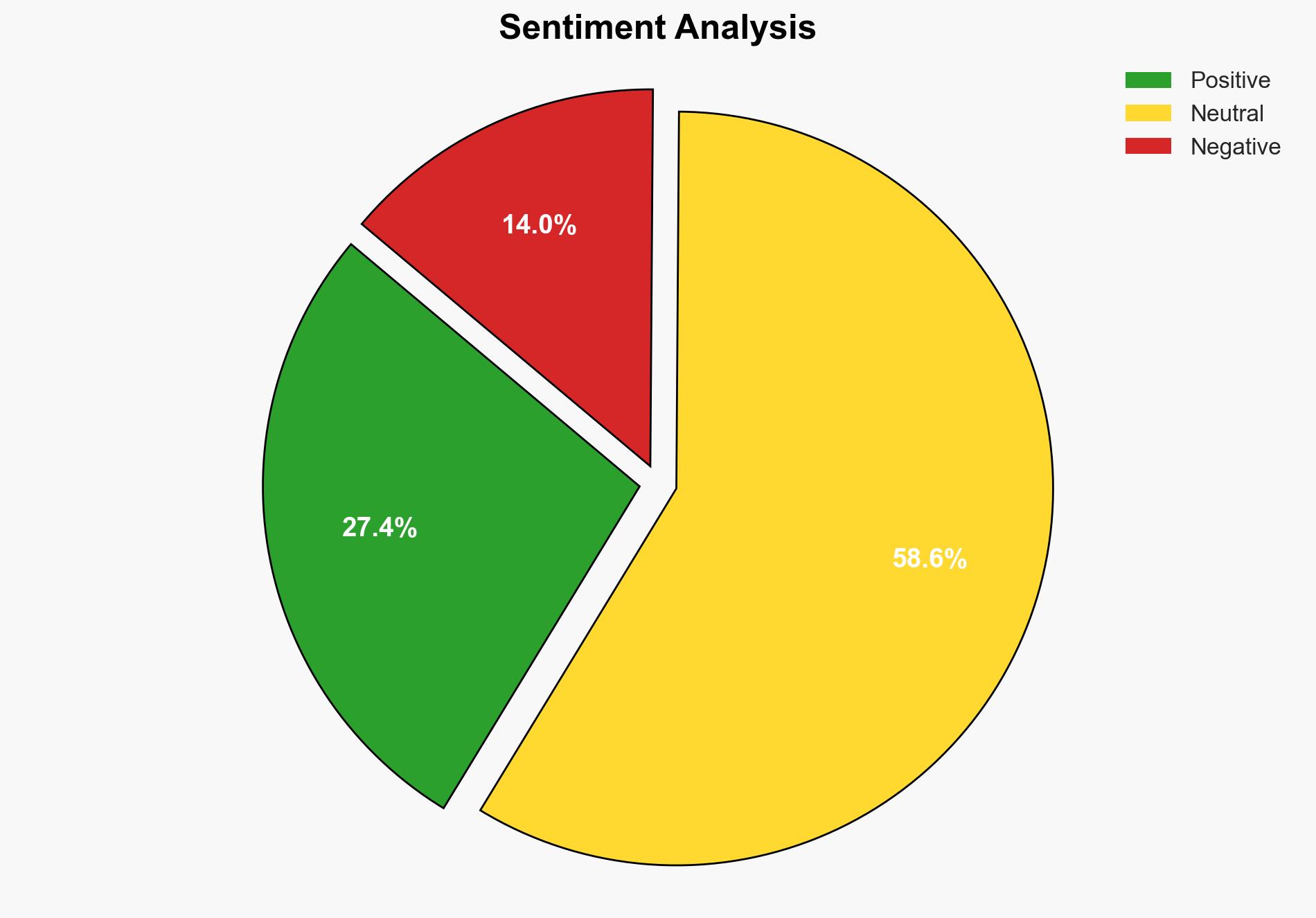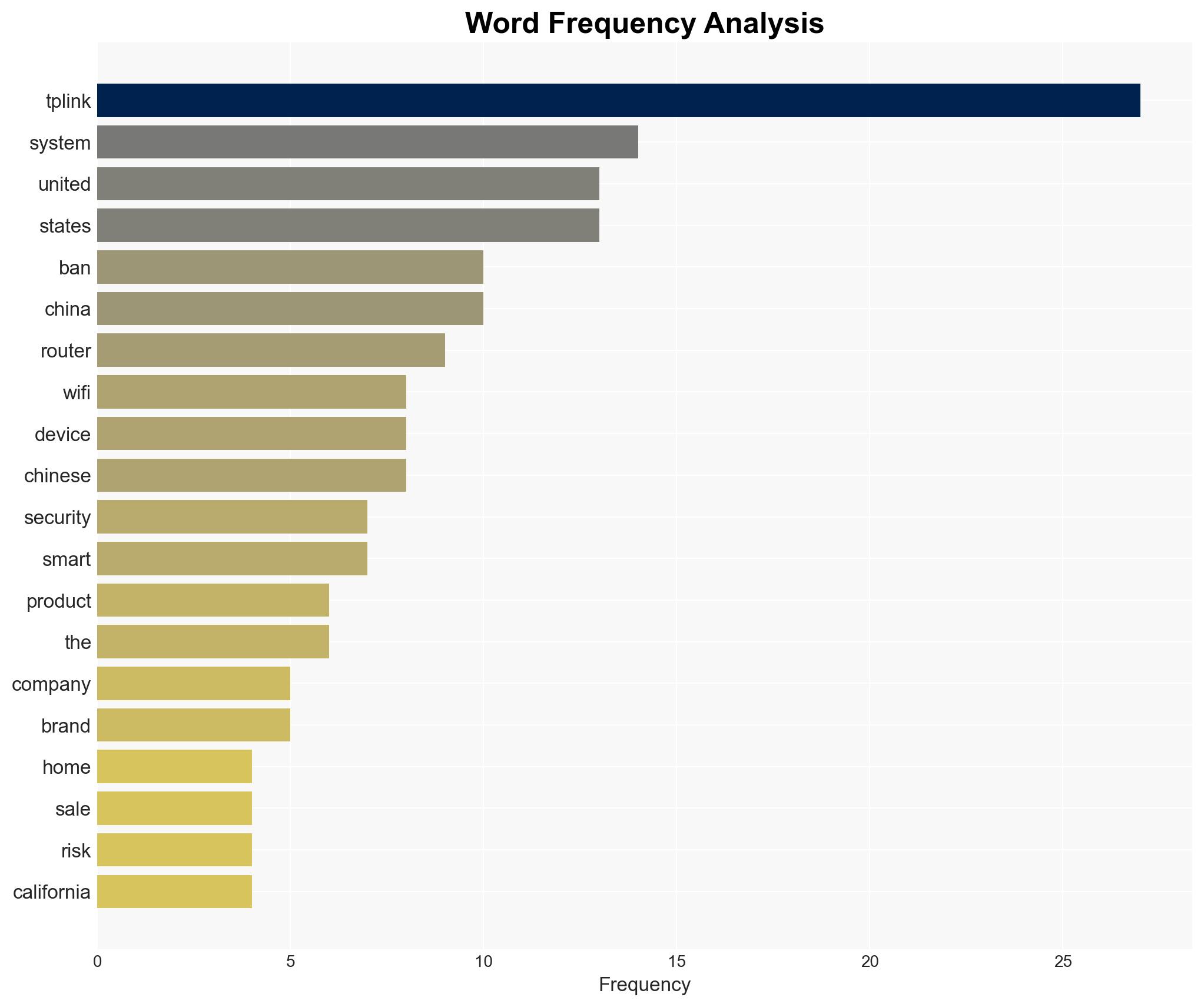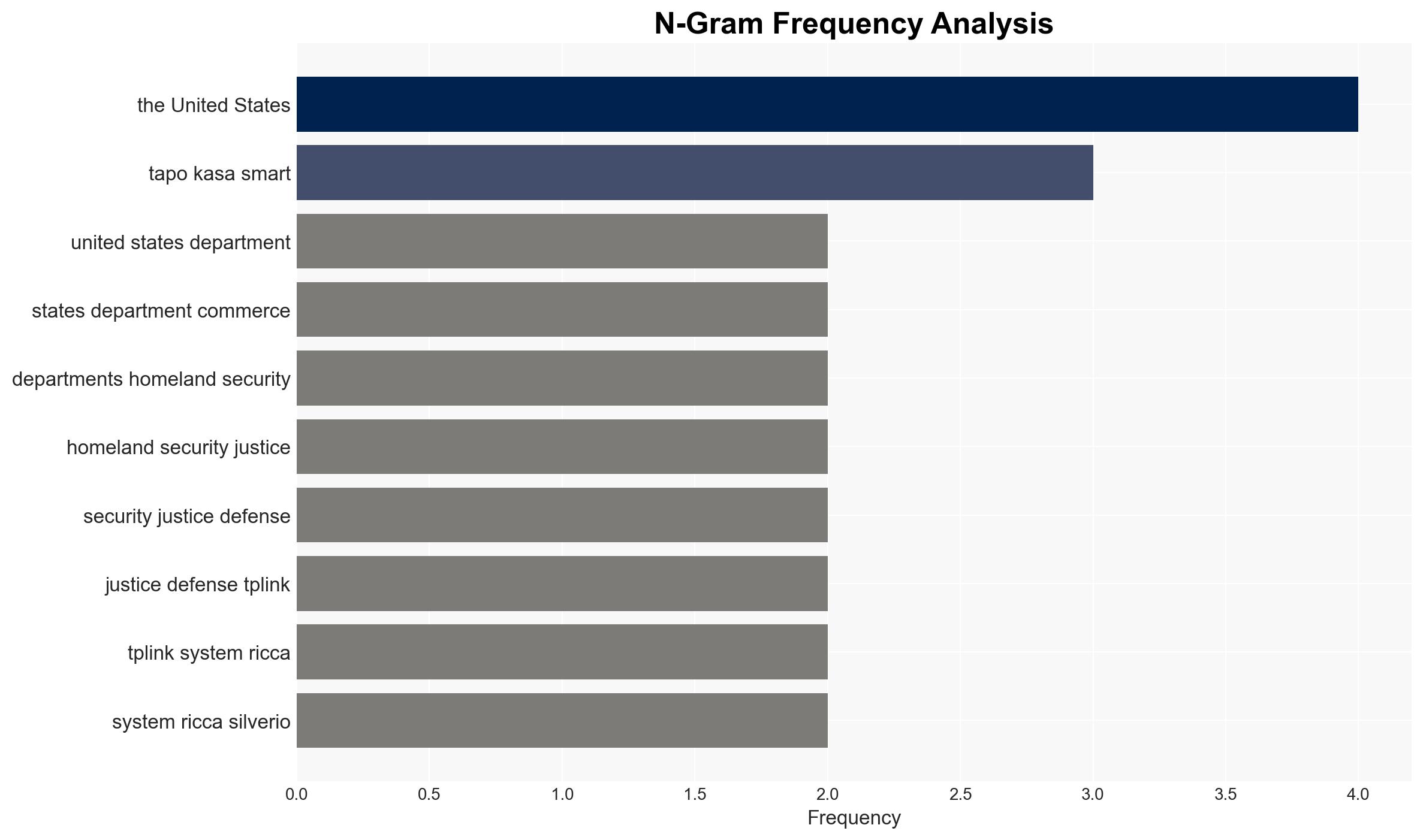The US Wants To Ban TP-Link Wi-Fi Routers From Your Home – Here’s Why – BGR
Published on: 2025-11-17
AI-powered OSINT brief from verified open sources. Automated NLP signal extraction with human verification. See our Methodology and Why WorldWideWatchers.
Intelligence Report:
1. BLUF (Bottom Line Up Front)
The most supported hypothesis is that the proposed ban on TP-Link routers is primarily driven by national security concerns related to potential Chinese government influence and data security risks. Confidence in this assessment is moderate due to limited public evidence and potential political motivations. Recommended action includes conducting a comprehensive risk assessment and exploring diplomatic channels to address security concerns while minimizing economic disruption.
2. Competing Hypotheses
Hypothesis 1: The ban on TP-Link routers is primarily due to genuine national security concerns about Chinese government influence and potential data breaches.
Hypothesis 2: The ban is driven by economic protectionism and geopolitical tensions with China, using national security as a pretext.
Assessment: Hypothesis 1 is more likely given the involvement of multiple U.S. security agencies and the historical context of similar actions against other Chinese tech firms. However, Hypothesis 2 cannot be dismissed entirely due to the lack of transparent evidence and the broader U.S.-China geopolitical context.
3. Key Assumptions and Red Flags
Assumptions: The U.S. government has credible intelligence on TP-Link’s security risks. TP-Link’s ties to China inherently pose a security threat.
Red Flags: Lack of detailed public evidence supporting the security risk claims. Potential bias due to ongoing U.S.-China tensions.
Deception Indicators: Possible exaggeration of threats to justify economic or political objectives.
4. Implications and Strategic Risks
Political: Strained U.S.-China relations could escalate, affecting diplomatic and trade negotiations.
Cyber: Increased scrutiny on other Chinese tech firms, potentially leading to broader bans.
Economic: Potential market disruptions and increased costs for consumers due to reduced competition.
Informational: Risk of misinformation or propaganda campaigns from both sides to sway public opinion.
5. Recommendations and Outlook
- Conduct an independent, transparent risk assessment of TP-Link products to validate security concerns.
- Engage in diplomatic discussions with China to address security issues and avoid escalation.
- Encourage diversification of supply chains to mitigate economic impacts.
- Best-case scenario: Security concerns are resolved diplomatically, maintaining market stability.
- Worst-case scenario: Escalation leads to broader tech bans and economic fallout.
- Most-likely scenario: Limited ban with ongoing negotiations and gradual market adjustments.
6. Key Individuals and Entities
Rob Joyce (NSA Cybersecurity Director), Ricca Silverio (TP-Link Systems Spokeswoman)
7. Thematic Tags
Regional Focus, Regional Focus: United States, China
Structured Analytic Techniques Applied
- Causal Layered Analysis (CLA): Analyze events across surface happenings, systems, worldviews, and myths.
- Cross-Impact Simulation: Model ripple effects across neighboring states, conflicts, or economic dependencies.
- Scenario Generation: Explore divergent futures under varying assumptions to identify plausible paths.
- Network Influence Mapping: Map influence relationships to assess actor impact.
Explore more:
Regional Focus Briefs ·
Daily Summary ·
Support us
·





